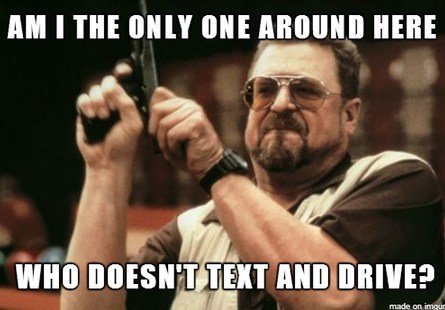
Final Reflections…
…’cause it’s a dude looking at a mirror. IT’S FUNNY. Moving on…
English 332 ended up being less of a giant wake-up for me than it was a solid reinforcement of some ideas I’ve had as far as how to undergo teaching… I guess a common term used to define this transition in the gaming industry would be “evolutionary” vice “revolutionary”. I already knew I wasn’t going to follow traditional paradigms with regards to how I conducted a classroom, however, I was pleasantly surprised to find that the research other individuals had conducted was favoring the direction I was moving in, as well as giving me ammunition for when the time comes to defend that particular foxhole.
The course did give me some interesting ideas as to how to incorporate elements of gaming into the classroom, and where to adjust the challenge of the assignments as needed, from a perspective of desired challenge derived from gaming theory. Deviating from the standard will be a challenge in itself in terms of designing an intuitive and effective program, but ultimately will result in a better education for my students. I’ll be taking the idea of “social learning skills” and “apprenticeship” quite a bit further than simply giving out copious group projects and forcing my students to wish death upon me far too many times before it mercifully acquiesces to their pleas. I won’t be “that guy”.
What I will do, largely as a result of my courses this semester, is keep my ear to the proverbial ground. What are my students doing for entertainment? How are they communicating “normally”? What are they reading, to the delight and derision of other teachers? How can I engage them on level ground, and, without boring or scaring them, give them the access they’ll need to thrive as adults? In order to teach, I will have to engage in learning myself, and employ one of the strongest human traits so many “bad teachers” failed to use: adaption.
I will also have to be very aware of things like tool access and “unwritten lessons”, as I call them, constantly asking questions like, “Are they learning to craft a better essay, or are they learning to craft a better essay for me.” Will the act of writing a paper in my class be an act of creativity, or one where the student plays the time-honored game of “Guess-what-the-teacher-wants”, or that other high-school/college favorite, the writing projects that emphasize mind-reading skill over independent thought.
As final addendum to this, I decided to refresh myself as to just how difficult it can be to learn a completely new concept, employing any and all techniques as I could to finish this. The result was a completed animation project for my related English 431 course, and though it’s far from perfect, I learned hell of a lot making it. Bear in mind, I’m not an art major and have had no training in making animation, video, or animated video: https://youtu.be/vSA6UuCN7KA
It’s also the first successful assignment submission I’ve made featuring Dickbutt. That was your warning and the last I’ll give!





 Website:
Website: